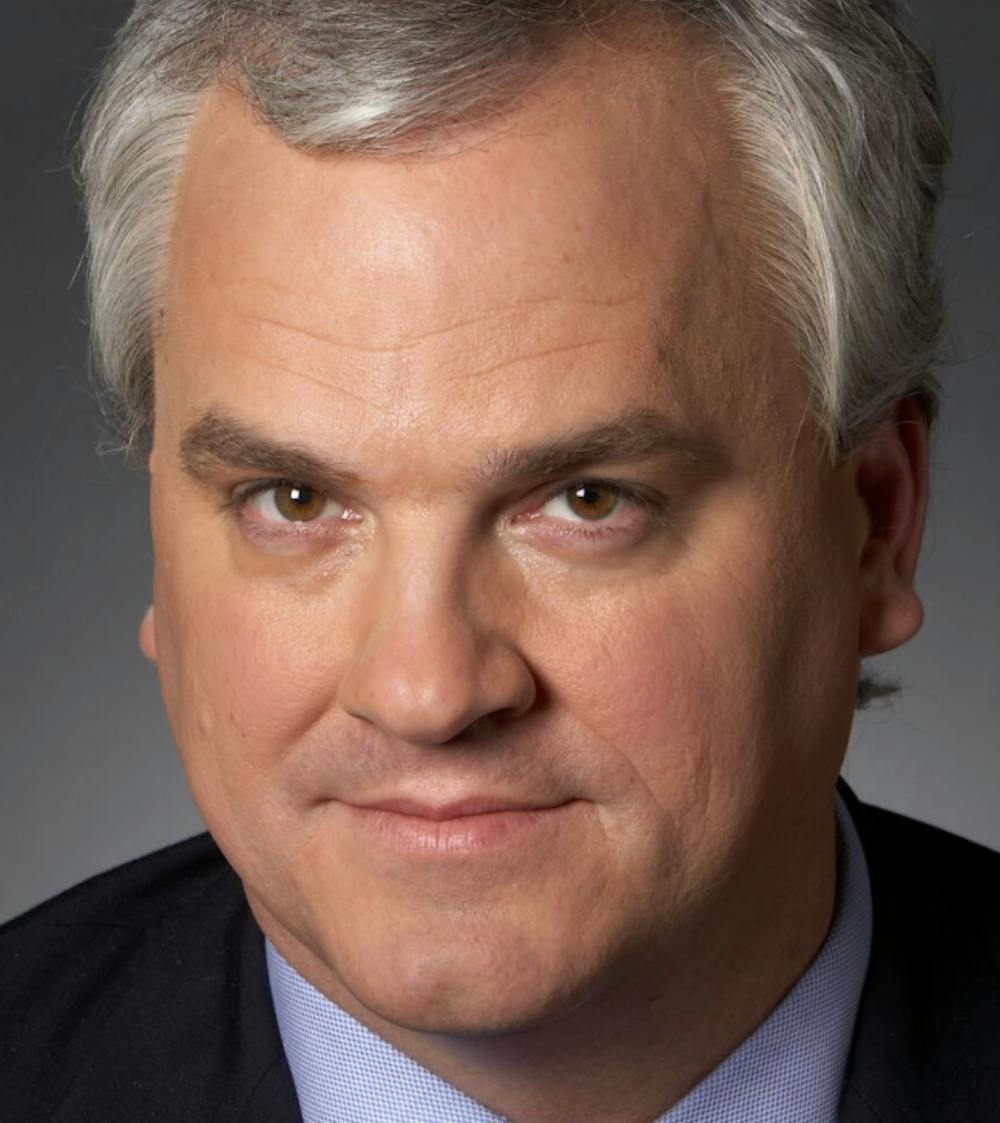Pulitzer Prize-winning author Douglas Blackmon — who formerly served as the Miller Center’s director of public programs — is leaving the nonpartisan think tank after six years.
His contract as director of public programs expired last week and he declined an offer to stay on as a senior fellow, writing in an email to Center CEO William Antholis on Sept. 30 that “our ships are traveling on very different bearings.”
“Where the Center is headed, and the kind of work that I'm doing independently, was no longer a natural fit for an ongoing relationship,” Blackmon said in an interview with The Cavalier Daily.
Blackmon won a Pulitzer Prize in 2009 for his book, “Slavery by Another Name: The Re-Enslavement of Black Americans from the Civil War to World War II,” and was previously The Wall Street Journal’s Atlanta bureau chief and the paper’s senior national correspondent. He was the executive producer of the Miller Center’s nationally-distributed public policy television program, American Forum, until the three-year-old show was discontinued in March due to a lack of funding.
In the email to Antholis — obtained by The Cavalier Daily the day after it was sent — Blackmon details his concerns with the present direction of the Miller Center.
“Your direction for the Center appears to be one that departs substantially from the founding doctrines of problem-solving on great national problems, encouraging public engagement and discourse, and financial independence designed to preserve ‘maximum autonomy’ within the structure of the University of Virginia,” he wrote.
In an interview with The Cavalier Daily, Miller Center Director of Communications Howard Witt disputed the idea that the Center has shied away from solutions-based research, citing the Center’s collaboration with the Democracy Initiative in the College — a multidisciplinary program seeking to find “solutions for the crises that ail democracy in America and around the world” — and its work looking at causes and effects of the 2008 financial crisis around its 10-year anniversary.
"Nothing could be further from the truth,” Witt said. “Everything we do is about trying to find solutions for the problems in democracy writ large and in particular with the modern presidency."
Witt also said he doesn’t take issue with the Center becoming more directly affiliated to the University.
"He might have a perspective that [working with the University is] a bad thing. We think it's a wonderful thing,” Witt said. “We believe it makes all kinds of sense for the Miller Center to contribute its deep expertise and scholarship on the presidency, to join forces with the incredible work that is being done on Grounds by historians and political scientists and really all kinds of folks to now try to confront the dilemmas facing democracy."
In his letter, Blackmon also criticized the Center for hiring Marc Short — a former legislative affairs director under President Donald Trump and current Miller Center senior fellow — and told Antholis that he must stop the Center from “inadvertently becoming a platform for damaging partisanship.”
Short’s appointment led to widespread protests, with thousands signing petitions in opposition and two Center-affiliated professors resigning in protest.
“I bear no personal ill will toward [Marc Short],” Blackmon wrote in his letter to Antholis. “But I have been unable to resolve my concerns about the selection of a Fellow with a history of employing lack of candor on crucial national issues as a frequent strategy, who remains a de facto spokesperson for an active administration, and whose career remorselessly embodied approaches that the Miller Center’s own work has long concluded to be damaging to our democracy.”
The appointment of Short, Blackmon said in the interview, is representative of a larger problem he sees in the Miller Center.
“The Short appointment was part of a larger transformation that I think has been happening with the Miller Center, that is moving it away from a focus on civility and our national dialogue and how to better public discourse,” Blackmon said.
The Center has defended Short’s hiring as academically-sound, with Witt telling The Cavalier Daily in July that the appointment “deepens our scholarly inquiries into the workings of the American presidency.”
Blackmon added that the problems he sees at the Center can be addressed.
“It's a place that should be focused on solutions-oriented research,” Blackmon said. “The Center has a great history of that in the past four decades, of taking on constitutional issues — in specific, mechanical problems in government, and very thorny things, like race relations in America and the role of the media in democracy, and partisan media versus nonpartisan media ... it's really lost that focus, and I would urge them to reconsider the drift away from all of that."
In an email to The Cavalier Daily after Blackmon’s resignation, Witt thanked him for his tenure at the Center.
“Doug was a terrific asset to the Center during his time here, particularly as host of the American Forum TV program,” Witt said. “We wish him well in his new endeavors.”







